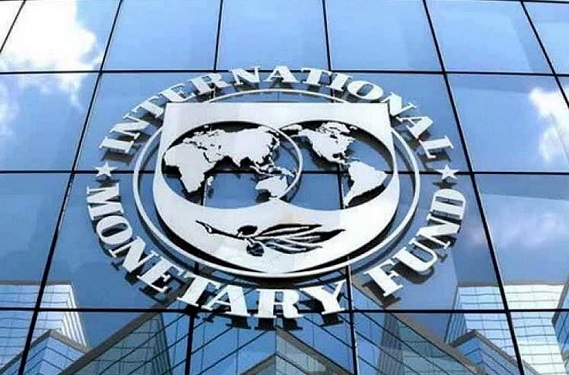KARACHI: Pakistan Stock Exchange above the 98,000 mark on Friday as share prices surged more than 2,000 points in intraday trade
WASHINGTON: The executive board of the International Monetary Fund (IMF) meets on Monday (today) to consider a bailout package for Pakistan as Islamabad claims tying up at least $37 billion in loans and investments.
If the board approves the deal, the IMF will immediately disburse about $1.2 billion to Pakistan and may provide up to $4 billion over the remainder of the current fiscal year, which began on July 1.
“The board is likely to approve the disbursement of the 8th and 9th tranche (over $1.2 billion) on Monday,” an IMF source told Dawn. “Not doing so will send a negative signal, particularly during the floods.”
Pakistan, he said, could also request emergency help from the IMF’s Rapid Financing Instrument (RFI), which may bring additional funds of up to $500 million.
In April 2020, the board approved the disbursement of $1.386 billion to Pakistan under the RFI to address the economic impact of the Covid-19 shock.
Also, The Wall Street Journal (WSJ) reported on Sunday that in recent weeks Pakistan “has tied up at least $37 billion in international loans and investments, pulling the country away from the kind of financial collapse seen in Sri Lanka”.
Both WSJ and Voice of America (VOA), a semi-official broadcasting service, confirmed that the board is meeting on Monday to consider Pakistan’s request.
The VOA reported that in the last six weeks Pakistan has secured “loans, financing, deferred oil payments and investment commitments close to $12 billion from China, Saudi Arabia, Qatar and UAE” to avoid a default. But such commitments will become available only after the IMF board approves the package.
The VOA quoted experts as telling its correspondents that “Pakistan’s economy is broad and deep and its geostrategic position strong enough for it to avoid default.”
Tamanna Salikuddin, director of South Asia programs at the United States Institute of Peace, told VOA that despite differences Washington “still supports the loans through the IMF because a crisis on Afghanistan’s border is not something that the US wants to see.”
She identified “Counterterrorism, nuclear security and stability” as being the main factors for continued US interest in Pakistan. But Salikuddin noted that “this geostrategic importance (often) leads Pakistan to make irresponsible economic policies as the leadership perhaps believes the country is too big to fail.”
The WSJ noted that the IMF had asked the country to first arrange additional funds to cover the rest of its external funding shortfall for the fiscal year, pointing out that Islamabad appears to have met that target.
Among allies, “China led the way, providing more than $10 billion, mostly by rolling over existing loans,” the report added.
In an interview to WSJ, Finance Minister Miftah Ismail said Saudi Arabia was rolling over a $3 billion loan and was providing at least $1.2 billion worth of oil on a deferred payment basis. Riyadh would also invest $1 billion in Pakistan.
The UAE will invest a similar amount in Pakistan’s commercial sector, and it is rolling over a $2.5 billion loan. Last week, Qatar announced it would invest $3 billion in the country.
But the WSJ report warned that the scale of the flooding from heavier-than-usual monsoon rains “means that the country will need more financing than it had planned for.”
You May Also Like
TEHRAN: The head of Iran’s Revolutionary Guards described the arrest warrant issued by the International Criminal Court for Israeli Prime
LOWER KURRAM: The death toll in yesterday’s gun attack on passenger vans in Khyber Pakhtunkhwa’s Lower Kurram has risen to 42,






